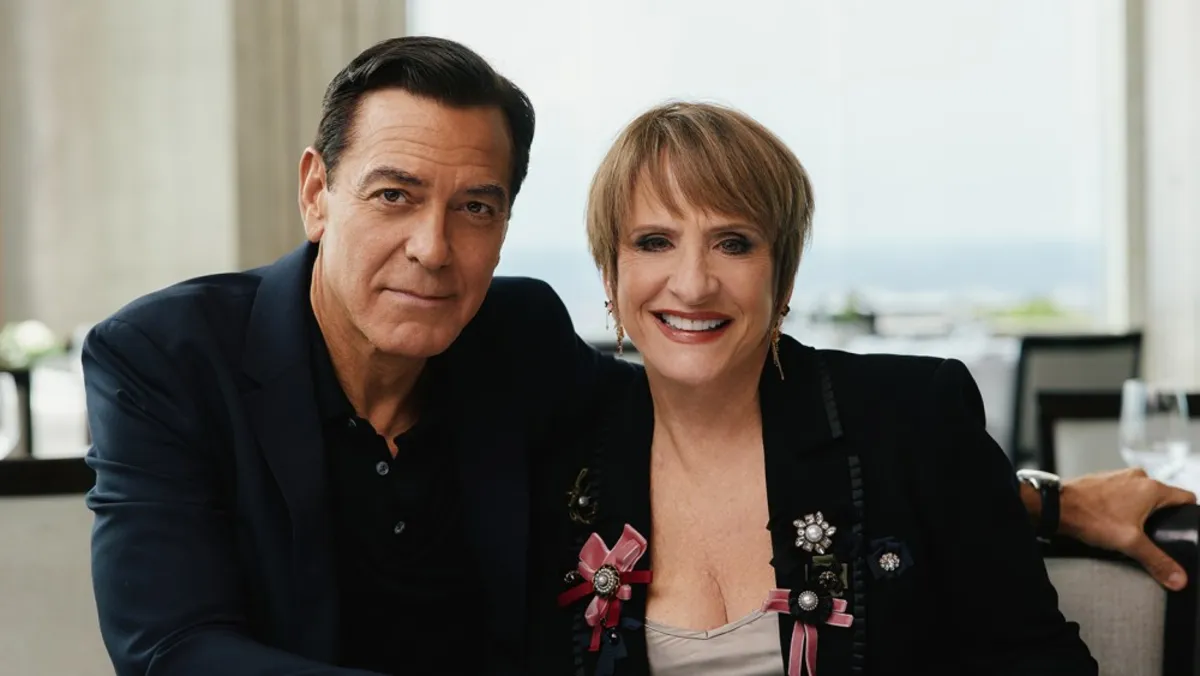
In a recent encounter that highlights the intersection of theater and political discourse, Patti LuPone expresses her concern for George Clooney as he balances confidently on a ladder during a photo shoot. Clooney, renowned for his cinematic roles, is taking a bold step as he makes his Broadway debut portraying Edward R. Murrow in the stage adaptation of his acclaimed 2005 film, “Good Night, and Good Luck.” LuPone's theatrical concern is tinged with admiration, as she recognizes the significance of Clooney's role in a time when the entertainment industry often appears hesitant to voice its opinions.
The play, which juxtaposes the life of the esteemed broadcaster against the backdrop of McCarthyism, resonates even more deeply in the current political climate, particularly during the Trump era. LuPone, a seasoned Broadway star, is not just a fan of Clooney's acting; she also appreciates his willingness to speak out on pressing issues. Clooney's humility is evident as he shares how he has long admired LuPone's electrifying performances, which have left indelible impressions on audiences.
As their conversation unfolds, Clooney and LuPone touch on grave concerns regarding the future of democracy and the indispensable role of art in challenging societal norms. Clooney reflects on the power of theater to spark crucial dialogues, stating, “Edward R. Murrow was us at our best.” LuPone adds, “It’s so necessary in these times to hear that elegance, to hear that articulation of an idea and a noble delivery of it.” Their exchange not only highlights their mutual respect but also emphasizes the importance of artistic expression in turbulent times.
During their discussion, Clooney reveals his commitment to advocating for actors’ pay, specifically naming LuPone as deserving of recognition and financial support. LuPone responds appreciatively, acknowledging the constant struggle for fair compensation in the theater world. Their shared experiences underscore the challenges faced by stage actors who often remain undervalued despite their contributions to the arts.
As Clooney reminisces about his childhood and the lessons imparted by his father, he notes the importance of standing up for those with less power. He emphasizes the role of the fourth estate in holding authority accountable, paralleling the historical struggles against figures like McCarthy. LuPone passionately agrees, stating, “Art should be the voice before it’s silenced,” reinforcing the notion that the arts can serve as a beacon of hope and education.
The conversation shifts to theatrical revivals, with LuPone expressing her thoughts on productions that have reimagined classic shows like “Sunset Blvd.” She candidly shares her admiration for innovative interpretations, reflecting on the evolution of theater and the importance of fresh perspectives. Clooney, who shares his admiration for LuPone’s performances, acknowledges the thrill of witnessing the transformative power of theater firsthand.
The duo also delves into the challenges of live performances, particularly the distractions posed by cellphones in the audience. LuPone recounts a memorable incident where she took matters into her own hands, retrieving a cellphone from an audience member in a bold act that drew applause. Clooney shares his own experiences with disruptive audience members, highlighting the shared responsibility of both actors and viewers to maintain the integrity of the performance.
As their discussion draws to a close, Clooney expresses optimism for the future, recalling historical moments of upheaval and the resilience of the American spirit. LuPone, with her characteristic candor, shares her more skeptical outlook, yet both share a commitment to challenging the status quo through their art. Clooney’s belief in the potential for positive change resonates, offering a glimmer of hope in these uncertain times.
In this enlightening conversation, Clooney and LuPone not only celebrate the power of theater but also emphasize its role as a catalyst for social change, reminding us all of the importance of using our voices in the face of adversity.